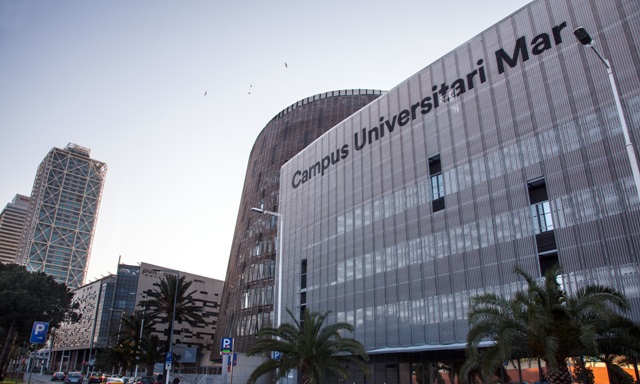History

Within the framework of the Faculty of Health and Life Sciences and the Department of Experimental and Health Sciences, in 1998, Pompeu Fabra University (UPF) launched a pioneering five-year degree programme in Biology with a clear orientation towards human biology.
In 2008, the degree in Biology was adapted to become the bachelor’s degree in Human Biology. That same year, UPF and the Autonomous University of Barcelona (UAB) launched a joint bachelor’s degree programme in Medicine, the first such interuniversity bachelor’s degree programme in the country. In 2021, the UPF launches a new bachelor's degree program in Medicine. Today, the Faculty of Health and Life Sciences offers bachelor’s degree programmes in Human Biology, Medicine, Medicine (UPF-UAB, in extinction), Biomedical Engineering and Bioinformatics, as well as UPF-endorsed master’s degree programmes in Biomedical Research, Bioinformatics for Health Sciences, Pharmaceutical and Biotechnology Industry, Clinical Analysis Laboratory and Public Health and a PhD programme in Biomedicine.
In 2022, the Department changes its name to Department of Medicine and Life Sciencies.
At the same time, the growth of the Department of Experimental and Health Sciences has been based on the rigorous selection of its members, many of whom have been recruited through competitive calls, such as the ICREA or Ramón y Cajal programmes. As a result of its research, in 2015 and 2018, the Department was designated a “María de Maeztu” Unit of Excellence by the Spanish Ministry of Economy and Competitiveness (MINECO).
In 2014, the Nobel Prize in Medicine laureate Sydney Brenner was awarded an honorary doctorate by UPF at the Faculty and Department’s request.
From the outset, the Faculty and Department have been firmly committed to integrating research and teaching. To this end, they have implemented an educational project that includes scientific research throughout the training offered to undergraduate, postgraduate and doctoral students. This integration project culminated in 2016 with the merger of the Faculty and the Department in a single Academic Coordination Unit that retains the name Faculty of Health and Life Sciences. This innovative organizational system increases institutional agility and fluidity and enhances efficiency. Only thus will the Faculty be able to maintain and surpass the good results obtained in teaching and research to date and improve the provision of services associated with its three main missions: teaching, research and knowledge transfer.
